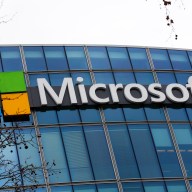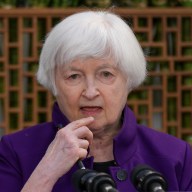 There has been an 18 percent decrease in Ride customers since June 1, when fares more than doubled for people with disabilities. Credit: metro-magazine.com
There has been an 18 percent decrease in Ride customers since June 1, when fares more than doubled for people with disabilities. Credit: metro-magazine.com
A majority of MBTA Ride users who make less than $2,000 per month have cut back on food, personal grooming and transit trips after fares increased last July, according to an overdue state study into the impacts of the fare hikes on the elderly and disabled in Massachusetts.
The Ride, a door-to-door para-transit service mandated by the 1990 Americans with Disabilities Act, served 31,247 users in fiscal year 2012, which ended on June 30, 2012.
When the MBTA increased fares by an average of 23 percent across the board in 2012, fares on the Ride increased 100 percent, from $2 to $4, with a new $5 premium charge for late-scheduled trips or visits to a “premium service area.”
About 60 percent of respondents to a state survey said they make fewer transit trips, 40 percent use the Ride less often, and out of the 11.4 percent of respondents who have jobs, nearly 24 percent said they have changed their work hours.
Asked about impacts of the fare increases on their finances and quality of life, 17.6 percent said they have cut back on their medications and 22.3 percent said they have skipped payments or made partial payments for utilities or phone bills, and 71.5 percent of survey respondents said they have less spending money.
Users who qualify for the program can schedule Ride for trips from door to door.
For every trip on the Ride, seniors and people with disabilities take 12 trips on bus and train.
The higher fee impact was generally felt more acutely by survey respondents under the age of 65 and those who have an income of less than $2,000 per month. Sixty-six percent of respondents making under $2,000 made fewer transit trips compared to 39 percent of those making more than $2,000 per month.
In 2012, the MBTA discontinued Charlie Cards for Ride participants, which granted unlimited free travel on the “fixed route” system of subways and bus lines. Although the program stopped, 1,600 of those cards are still in circulation and “fixed route” travel for those riders increased 13 percent, or 352,298 trips, in fiscal year 2013.
The study, conducted by the Executive Office of Elder Affairs and the Massachusetts Office on Disability, surveyed 858 participants, including 665 Ride users selected at random. More than 70 percent of the respondents were female and about 64 percent were over the age of 65.
The study, dated Sept. 9, was due Jan. 1, according to the 2012 bailout law that sent $49 million to the MBTA and required the study.
Follow Morgan Rousseau on Twitter: @MetroMorgan
Follow Metro Boston on Twitter: @MetroBOS











